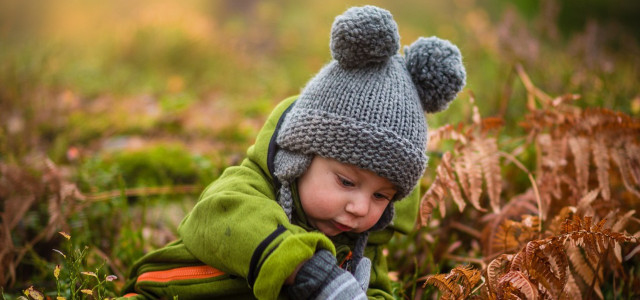Camping with a baby is a great way to instill a love of nature. Here are nine things to keep in mind for your little one’s first foray into the great outdoors.
Camping with a baby can be a special bonding experience that sets them up for a lifelong love of nature and confidence in the outdoors. Studies have suggested that infants as young as two months can form lasting memories. While they may not be able to recall them later in life, latent memories can influence adult attitudes and behaviors.
The key to a successful first camping trip with your baby is simplicity. The transition from the familiar setting of home to the unfamiliar setting of a campsite introduces many new experiences for your baby, such as new sights, sounds, smells, sensations and sleeping setups. By keeping your trip short and simple, you can avoid overwhelming your baby with novel stimuli and let yourself focus on keeping them comfortable and safe.
Remember, this first trip is all about your baby’s experience. If their first camping experience is a success, you can slowly expand the scope of your adventures as they grow, and you’ll likely have plenty of more exciting outings to look forward to. The following tips will help you plan a manageable yet memorable trip.
1. Start Small
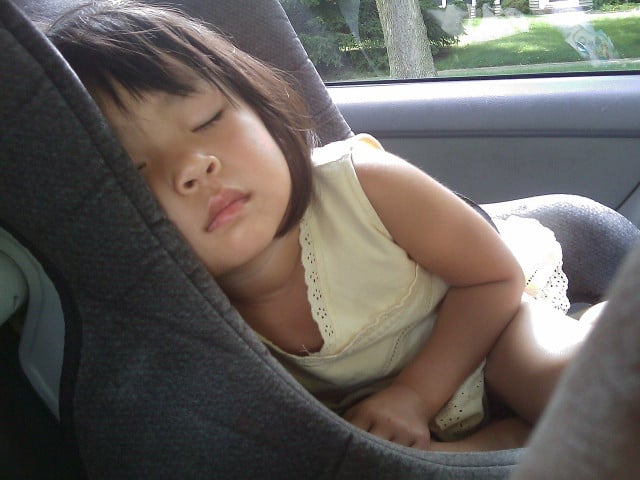
Brevity is the foundation of a good experience when camping with a baby for the first time. As a rule, plan a trip no longer than 48 hours. This includes travel time — you wouldn’t want to bookend an otherwise spectacular outing with two cranky car rides, so minimize driving time by choosing a location that’s not too far away.
2. Choose Your Location Wisely
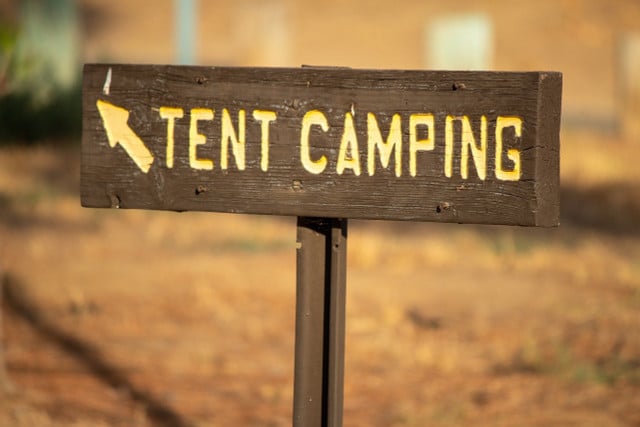


As well as being close to home, you’ll want to select a location accessible to emergency services and not too far from amenities. Ensure that you have access to clean water, especially if your baby uses formula, and make sure there’s a store within driving distance in case you need to make a quick supply run.
In terms of the site itself, choose a setting that’s free of obvious hazards like heights and standing water. On arrival, you’ll want to do a thorough sweep of the area for poisonous plants and any potentially harmful objects.
Another important thing to consider when choosing your campsite is the distance between you and other campers — ideally, your location will be out of earshot of anyone else. Since camping with a baby means sleeping outdoors, this already means a big change in their sleep routine; to optimize the chances of a good night’s sleep, minimize your exposure to the sound of someone else’s nighttime activity. Plus, if your baby doesn’t have the best night, you can at least rest assured that no one else around you is losing sleep over it.
3. Sleep
There’s a good chance that all the novelty and excitement of a first camping trip will result in a restive baby at bedtime. When packing for your trip, bring as much of your baby’s sleep paraphernalia from home as you can manage: blankets, pillows, stuffed animals and anything else they usually sleep with. The reassuring presence of these familiar items will prime them for bedtime.
Since babies can lose heat four times faster than adults, take extra care to make sure yours stays cozy and warm through the night. Consider investing in a sleeping bag designed specifically for camping with a baby, as they offer more insulation and protection than a general-purpose sleeping bag.
If you’re concerned that your baby might have trouble sleeping in an unfamiliar setting, a white noise machine might do the trick — studies have shown that white noise helps infants settle and induces sleep. If the sounds of crickets and wind in the trees aren’t soothing enough, a white noise machine may be the next best thing to help ensure a good night’s rest for everyone.
4. Pack a Bigger Tent
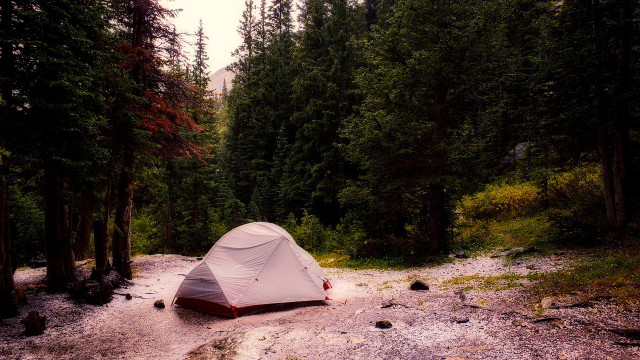


The tent is the mainstay of any camping experience. When camping with a baby, it’s much more important to consider the size, stability, and other qualities of your temporary shelter. Choosing a light-blocking tent will enable you to better regulate the temperature inside the tent on sunny days; it will also facilitate naps during daylight hours (handy if your little one kept you awake overnight).
While everyone’s size requirements may differ, a four-person tent is a good place to start — it may seem like more than you need, but you’ll likely appreciate the extra breathing room (and crawling room for your baby).
5. Use Manual Sunblock
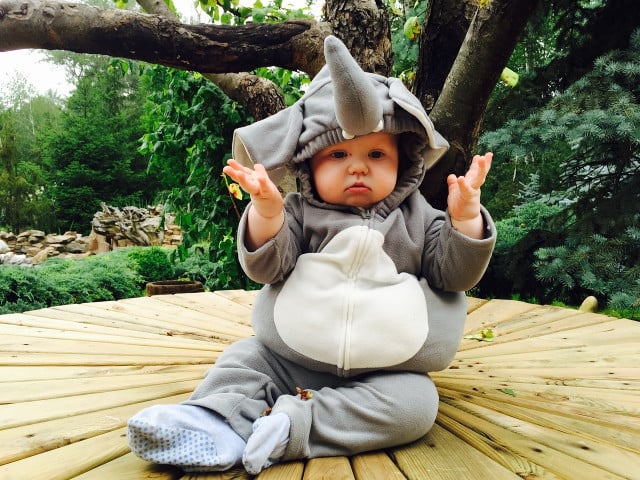


Since sunscreen is not recommended for children under 6 months, you’ll need to protect your baby from sunburn and UV rays the old-fashioned way if they haven’t hit that milestone yet. Take full advantage of the shade available at your campsite, and when choosing clothing to pack, remember to include long sleeves, pants, wide-brimmed hats and loose-fitting garments that will allow ventilation.
An umbrella of sufficient size can double as a parasol on sunny days; if your baby is keen to explore outdoors on a sunny day, you can use it to create some shade on the go.
6. Try DIY Insect Repellent
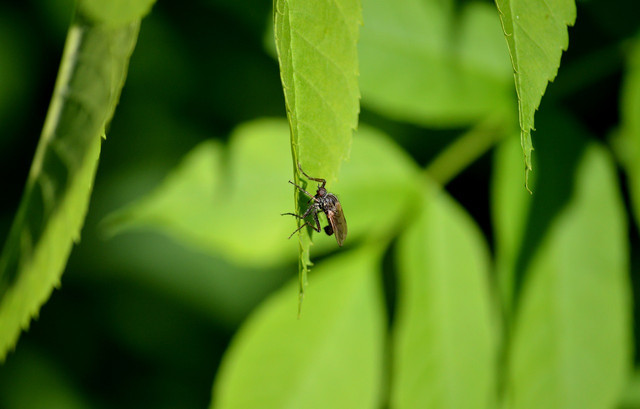


Bug spray is another modern convenience you may have to forgo when camping with a baby. Products containing common active ingredients, including lemon eucalyptus (OLE) or para-menthane-diol (PMD), should not be used on children younger than three. Consider bringing a mosquito net that will fit over a portable playpen or bassinet, and take extra precautions to avoid attracting wasps and other harmful insects to your campsite.
See also: 13 Different Types of Wasps to Watch Out For This Summer
7. Rethink Diapering
If you usually use cloth diapers at home, you can continue to do so while camping with your baby, provided you pack an airtight bag or container for used diaper storage. Be sure to test it before departure, and bring a reliable backup just in case — although a breach might guarantee that other campers would keep a respectful distance from your site, a waste management fiasco is the last thing you want to deal with when camping with a baby for the first time.
See also: How to Wash Cloth Diapers: A Beginner’s Guide
8. Plan Simple Meals
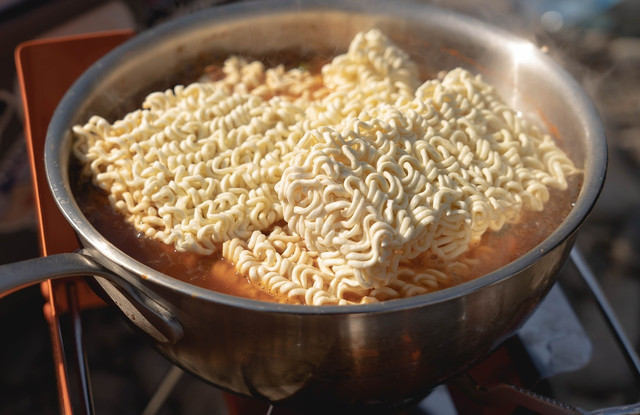


Keep the menu simple for the adults involved — quick meals that only require boiling water are ideal, like oatmeal, pasta or other vegetarian camping meals. This will minimize the time you spend preparing your own food, meaning more time to focus on the fun parts of camping with a baby — including serving their meals al fresco. If your baby is eating solids, consider bringing a folding high chair as an easily portable way to facilitate feeding time.
9. Bring a “Just In Case” Kit
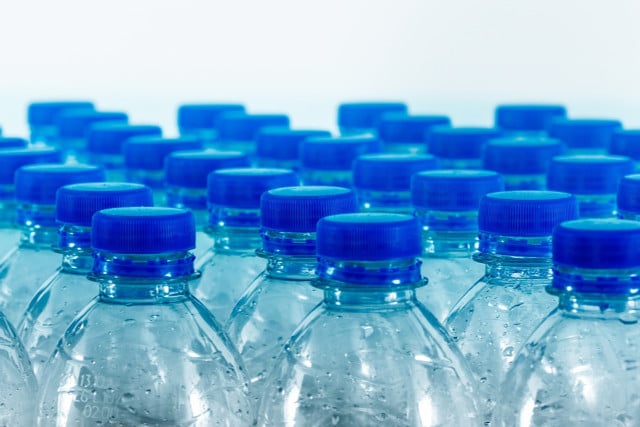


Experienced campers will often pack a first-aid kit or extra batteries, but when you’re camping with a baby, there’s a whole new list of things it’s better to have and not need than the other way around. Consider including the following in your “just in case” kit:
- Aloe vera ointment for sunburn
- Hydrocortisone cream (1%) for bug bites
- Portable solar charger for devices
- Baby thermometer
- Nail scissors
- Nasal aspirator
- Bottled water
Read more:
- Organic Diapers: The Most Natural and Sustainable Brands
- 8 Tips That Make Hiking With a Baby Easy & Fun
- 10 Natural Home Remedies for Mosquito Bites
Do you like this post?






